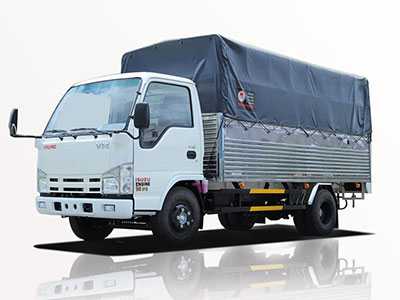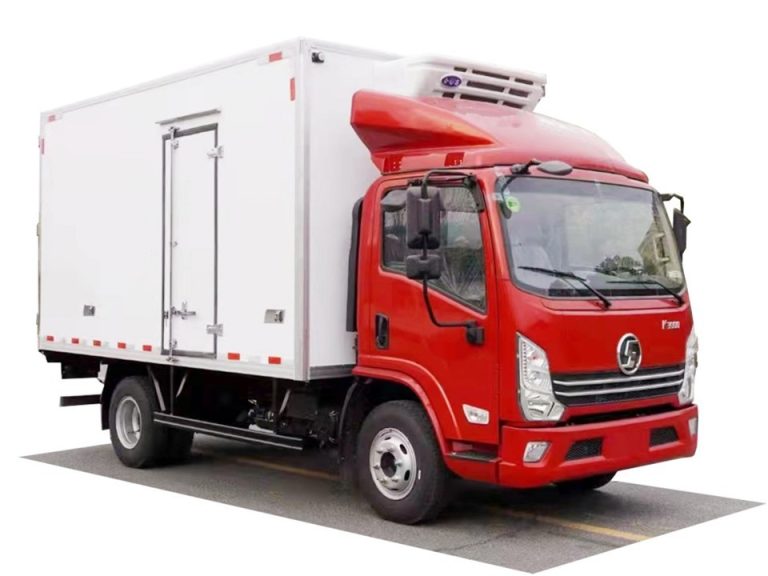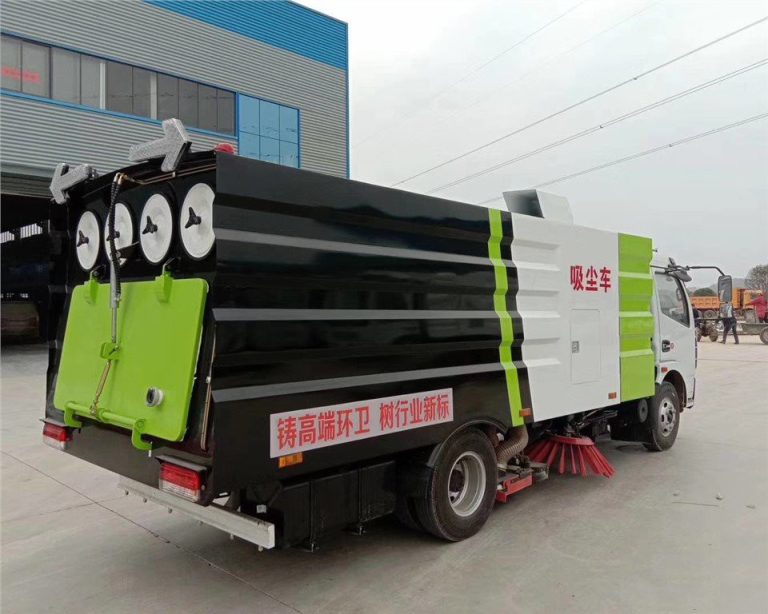Introduction
The bustling food truck industry has revolutionized the way people enjoy their meals on-the-go. Among the various types of food trucks, refrigerated food trucks serve a unique purpose that caters to a specific market segment. This comprehensive guide will delve into the world of refrigerated food trucks, exploring their importance, how to start one, the best practices for operation, and much more. Whether you’re a seasoned food truck veteran or considering starting your own refrigerated food truck business, this article contains valuable insights and tips to help you succeed.
What is a Refrigerated Food Truck?
A refrigerated food truck is a mobile kitchen equipped with refrigeration units that keep perishable goods fresh and safe for consumption. These trucks are essential for vendors who sell items that require a controlled temperature, like meats, dairy, fresh produce, and certain beverages. The refrigeration system ensures that food maintains its quality during transportation and storage.
Key Features of Refrigerated Food Trucks
- Insulated storage: Helps maintain the desired temperature for extended periods.
- Integrated refrigeration units: Essential for keeping perishable products safe.
- Food preparation areas: Equipped with necessary kitchen tools and equipment.
- Flexible design: Customizable layouts depending on business needs.
- Compliance with regulations: Meets health and safety guidelines for selling food.
Benefits of Operating a Refrigerated Food Truck
Starting a refrigerated food truck comes with numerous benefits. Here are some reasons why this business model is increasingly popular among entrepreneurs.
1. Versatile Menu Options
With a refrigerated truck, you can offer a wider range of menu items, including:
- Gourmet sandwiches with fresh ingredients
- Ice cream and frozen desserts
- Fresh salads and cold pasta dishes
- Specialty beverages like cold brews and smoothies
2. Catering to Health-Conscious Consumers
With an increasing demand for healthy eating, refrigerated food trucks allow you to provide fresh, nutritious options that cater to health-focused customers. This can set you apart from competitors who offer only fast food items.
3. Higher Profit Margins
Refrigerated trucks can often maintain higher profit margins due to the premium prices that fresh and high-quality items can command. Consumers are often willing to pay more for delicious, freshly prepared meals.
4. Flexibility and Mobility
Like all food trucks, refrigerated food trucks offer the convenience of mobility, allowing you to choose various locations and events to maximize customer reach and sales.
Getting Started with Your Refrigerated Food Truck
Embarking on a journey to start your refrigerated food truck isn’t merely about having a great recipe; it involves careful planning and execution. Here’s a step-by-step guide.
Step 1: Conduct Market Research
Before launching, it’s crucial to assess your potential market. Consider focusing on:
- Local competition: What are other food trucks offering?
- Consumer preferences: What types of refrigerated food are in demand?
- Event opportunities: Where can you gain the most foot traffic?
Step 2: Create a Business Plan
Your business plan should outline:
- Your food truck concept and vision
- Menu selection and pricing
- Marketing and growth strategies
- Financial projections
- Setup costs and funding sources
Step 3: Obtain Necessary Permits and Licenses
Operating a food truck requires various licenses and permits which may include:
- Business license
- Food service permit
- Health department permits
- Mobile vending permit
Step 4: Choose the Right Truck
Invest in a reliable refrigerated truck equipped with:
- Efficient refrigeration units
- Ample cooking and storage space
- Accessible service windows
- Compliant electrical systems
Step 5: Design Your Menu
Focus on creating a balanced menu featuring diverse offerings. Ensure that the items you select are both popular and suit refrigeration needs. Regular seasonal updates can keep the menu fresh.
Step 6: Marketing Your Business
Effective marketing strategies include:
- Social media promotion to attract customers
- Participating in food festivals and local markets
- Collaboration with influencers to reach a wider audience
- Creating a visually appealing logo and branding
Essential Equipment for a Refrigerated Food Truck
To ensure your refrigerated food truck operates efficiently, you’ll need specific equipment including:
1. Refrigeration Units
Invest in quality refrigeration units tailored to your business model. Options include:
- Reach-in refrigerators
- Upright coolers
- Freezers for frozen items
2. Cooking Equipment
Depending on your menu, you may require:
- Grills, fryers, and ovens
- Microwaves for quick cooking
- Prep tables for food preparation
3. Point of Sale (POS) Systems
Modern POS systems help manage transactions and inventory seamlessly, enabling your business to run smoothly during high-volume times.
4. Safety Gear and Hygiene Equipment
Items like gloves, hairnets, and first-aid kits are essential for maintaining safety and hygiene standards while preparing food.
Best Practices for Operating a Refrigerated Food Truck
Running a successful refrigerated food truck requires adherence to best practices that ensure food safety, quality, and customer satisfaction.
1. Maintain Optimal Temperature
Consistently monitor the temperature inside refrigeration units to ensure food stays safe. The ideal temperature for chilled goods is below 40°F (4°C), while frozen foods should be at or below 0°F (-18°C).
2. Regular Cleaning and Maintenance
Implement a daily cleaning schedule for all equipment. Regularly check refrigeration units for proper function and repair issues promptly to avoid food spoilage.
3. Monitor Inventory Levels
Consistently track your inventory to reduce waste. Create a system that helps you know when to restock ingredients while minimizing expired items.
4. Train Your Staff
Ensure that all staff members understand food safety practices, food handling instructions, and the importance of maintaining a clean working environment.
5. Engage with Customers
Create a welcoming atmosphere where customers feel valued. Engage them through social media, loyalty programs, and feedback solicitation to build a loyal customer base.
Challenges in Operating a Refrigerated Food Truck
While a refrigerated food truck business can be rewarding, there are specific challenges that operators may face.
1. Initial Investment Costs
The initial investment for a refrigerated food truck can be significant, encompassing purchasing or leasing the truck, outfitting it with equipment, and meeting licensing requirements.
2. Maintenance and Repairs
Regular wear and tear on both the vehicle and the refrigeration units can lead to unexpected repair costs. Setting aside a maintenance budget is essential.
3. Regulatory Compliance
Health regulations can vary by location, requiring food truck operators to stay informed of local laws, inspections, and health codes.
4. Weather Dependence
Weather can greatly impact your sales, with rainy or cold days leading to reduced foot traffic and customers. Having a flexible location strategy can mitigate this issue.
Marketing Strategies for Your Refrigerated Food Truck
Effective marketing is vital for attracting customers and boosting sales. Here are several strategies tailored to the refrigerated food truck industry.
1. Social Media Engagement
Engage your audience by sharing appealing visuals of your food, special offers, and daily locations on platforms like Instagram and Facebook to keep customers informed.
2. Email Marketing
Build an email list to send out newsletters featuring menu updates, upcoming events, and special promotions, thus fostering customer engagement.
3. Collaborate with Local Businesses
Partner with local businesses or farms to feature their products in your menu. This cooperation can drive traffic from the partner’s customer base while supporting local producers.
4. Promote at Events
Participate in food festivals, competitions, and local markets to showcase your food truck and attract new customers while building brand awareness.
5. Customer Loyalty Programs
Implementing a rewards program can encourage repeat business. Offering discounts or free items based on purchases can motivate customers to return.
FAQs About Refrigerated Food Trucks
1. What types of foods can I serve from a refrigerated food truck?
You can serve a variety of food items, including sandwiches, salads, ice creams, cold beverages, and more—anything that requires refrigeration for freshness.
2. How do I keep food at the right temperature in my refrigerated food truck?
Invest in high-quality refrigeration units, regularly monitor temperatures, and ensure proper ventilation within the truck to maintain consistent and safe temperatures.
3. What permits do I need to operate a refrigerated food truck?
The required permits vary by location, but generally, you will need a business license, food service permit, health department permits, and possibly a mobile vending permit.
4. How can I maintain food safety in my refrigerated food truck?
Implement strict hygiene practices, routinely clean the truck and equipment, and train staff on proper food handling and storage techniques.
5. How do I market my refrigerated food truck effectively?
Utilize social media marketing, establish an email list, participate in local events, and create collaborations with other local businesses to reach a broader audience.
6. What challenges do refrigerated food truck operators face?
Challenges include high initial investment costs, maintenance requirements, regulatory compliance, and dependence on weather conditions impacting sales.






